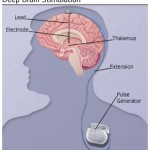Undergraduate Research!
As a pre-med student I have been hearing (since pretty much day one) that getting involved with research is really helpful in building up your resume for medical school. Coming to Vanderbilt, I knew there would be so many opportunities for getting involved with research–the trick was finding the right one for me!
My tour guide knowledge tells me that Vanderbilt is a Research I institution. We have about $615 million dollars being invested in research all throughout campus, whether it is clinical research, laboratory research, psychological research studies… you name it! Opportunities are available to all undergraduate students, regardless of major or focus of study. All you need is the desire to learn and the time to commit.
As of January, I became part of a Functional Neurosurgery Lab. I am not a neuroscience major, nor have I ever taken a neuroscience class before. I heard about the opportunity from a friend, contacted the research doctor, and before I knew it she was contacting me with details about the lab and offering to meet up and talk about my potential involvement with the lab. Not too long after THAT, she asked me how my schedule looked in terms of hours I could commit to the lab. The process was easy, and the group of people I work with–neurosurgeons, graduate students, and fellow undergraduates–couldn’t be better.

My lab focuses on whether the deep brain stimulation that helps so many Parkinson’s Disease patients relieve their physical symptoms also affects the patient’s cognitive and emotion-recognition ability. We run our voluntary participants on a variety of tasks that are designed to measure their cognitive and emotion-recognition ability with their stimulator turned on and off, and we analyze the results to see if there is a significant difference. The ultimate goal is to see if altering the actual placement of the electrodes of the stimulator could still alleviate the physical symptoms without compromising the patient’s cognitive functions. I know it sounds really advanced and cool but trust me…. it is that and so much more :)
I really enjoy my involvement with my research lab, and I really can’t wait for what’s in store for us in the very near future. It feels amazing to be a part of discoveries that could benefit the lives of SO many people!